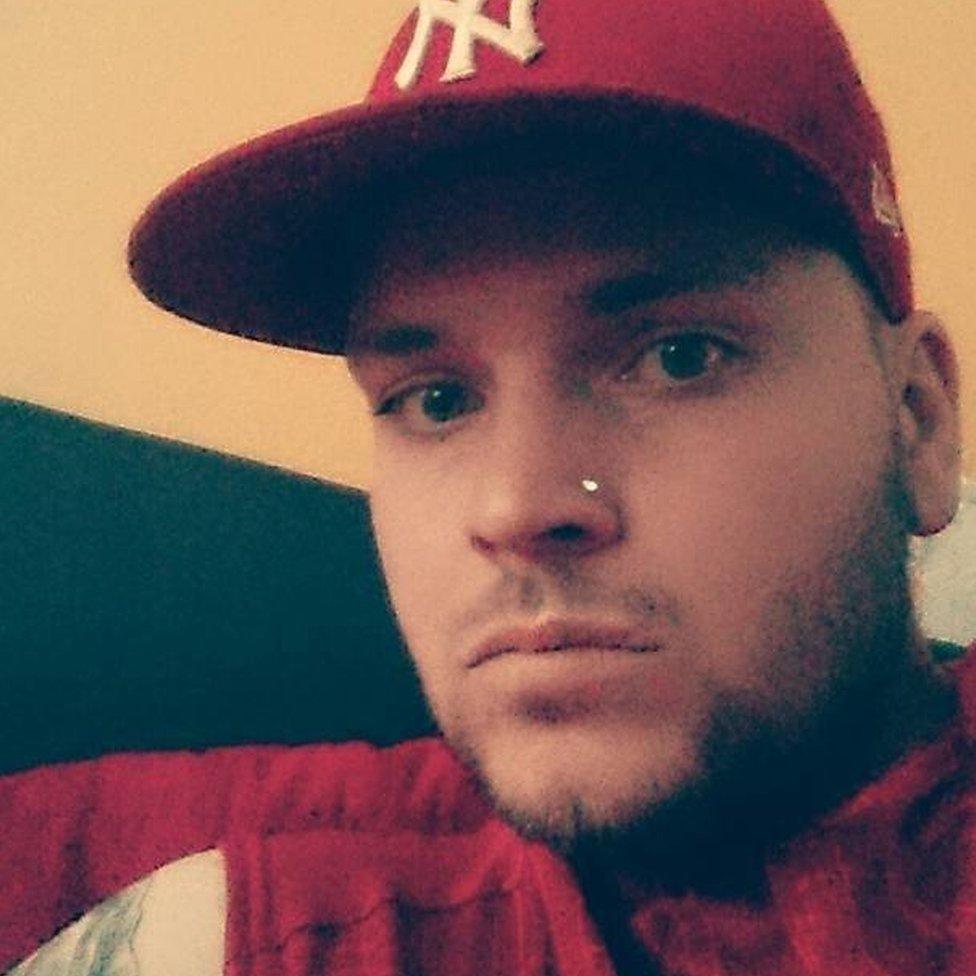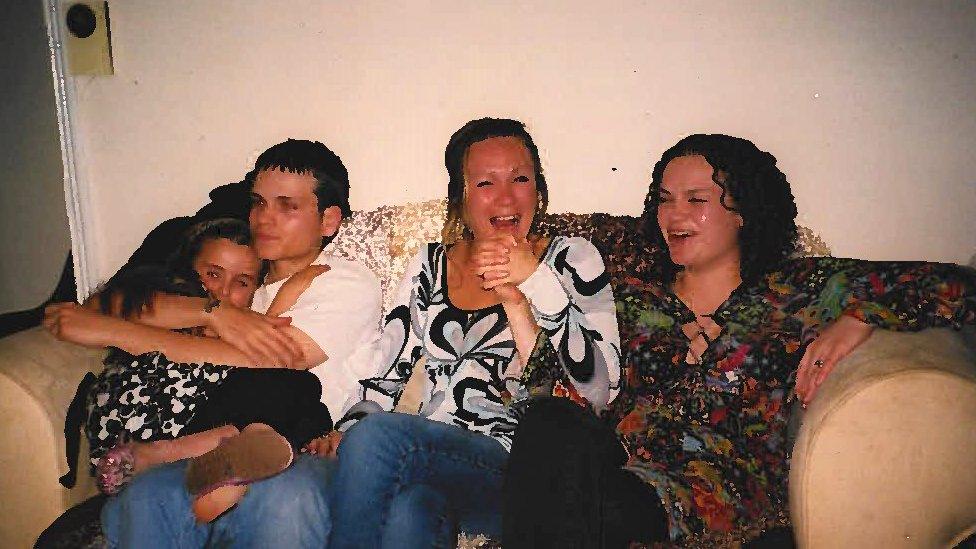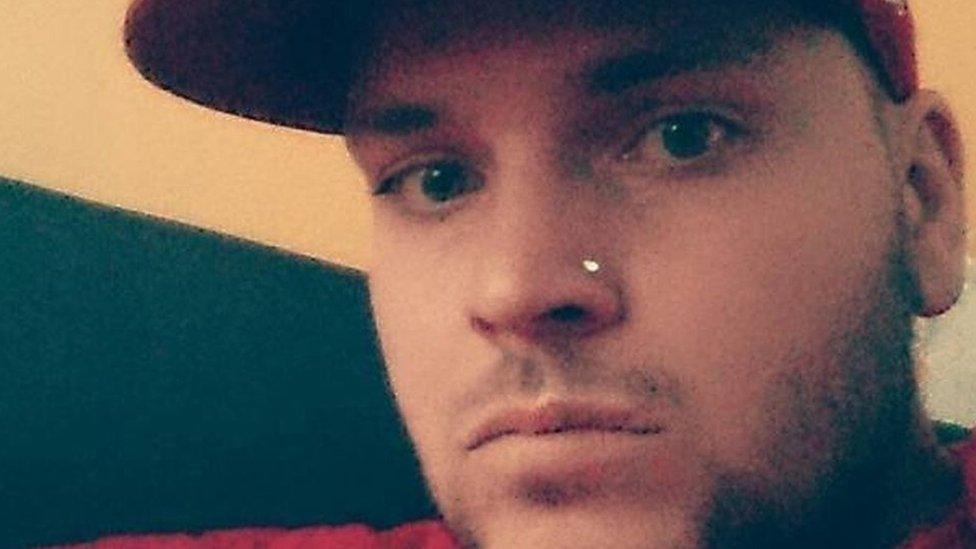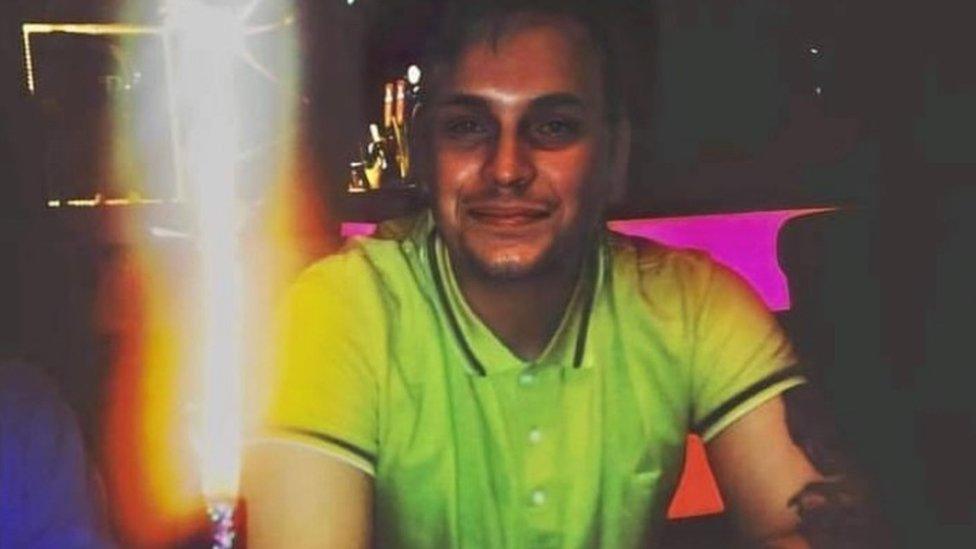Lewis Skelton: Police shooting of man was not justified, court told
- Published

Lewis Skelton died in hospital after being Tasered and shot in November 2016
Losing control of a man who had not surrendered after he was Tasered did not justify killing him, a court heard.
Lewis Skelton, 31, was carrying an axe when he was shot twice in a Hull street in November 2016 after he failed to respond to police instructions to stop.
An inquest found he was unlawfully killed, but Leeds Crown Court heard it was "unsafe" and should be quashed.
His family's lawyer said there was no evidence Mr Skelton had threatened members of the public.
The officer who fired the fatal shots has launched a legal challenge against the inquest verdict.
During the second and final day of the judicial review, the judge watched CCTV footage from 29 November 2016 showing Mr Skelton carrying an axe, with armed officers engaging him in Francis Street in the city centre.
The court heard a Taser was used four times, but the shots did not all connect with Mr Skelton.
Tim Moloney KC, representing Mr Skelton's family, said the officer who fired the fatal shots, who is only identified as B50, claimed there were "no other options".
"That's not the the point, we say," said Mr Moloney.
"Just because they lost control of Lewis Skelton, that doesn't justify killing him - it's only justifiable to use lethal force if there's a genuine belief in an imminent danger."
Despite some workmen being nearby during the incident, there was "no evidence Lewis Skelton threatened any member of the public", Mr Moloney added.

Lewis Skelton's family said the judicial review has been 'a lot to take in'
But Sam Green KC, representing B50, said: "If he was out of options and had that genuine belief, he had no other option."
He added: "At some point the axe was raised in the direction of the police officers."
The judicial review was previously told there was not a clear and properly directed summing-up to allow the inquest jury to reach their conclusion of unlawful killing as opposed to lawful killing.
Reserving judgement, Lord Justice Stuart-Smith told the court: "We are utterly conscious that one - nothing we do can turn the clock back, and two - this is exceptionally important to the family but also of course exceptionally important to B50.
"Although some people in this court will never agree about the truth, we will take as much time as we need."
Following the conclusion of the hearing, Mr Skelton's family told the BBC: "It's been a lot to take in over the past two days, having to relive it all.
"The original verdict, by a jury, was really important to us as a family and we hope that the legal processes will come to the same conclusion again."

Follow BBC East Yorkshire and Lincolnshire on Facebook, external, Twitter, external, and Instagram, external. Send your story ideas to yorkslincs.news@bbc.co.uk, external.
Related topics
- Published20 October 2022

- Published15 October 2021
